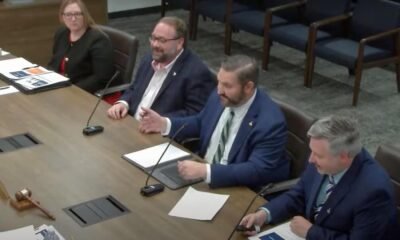abortion
Lawsuit Takes Aim at Abortion Delays and Telemedicine Restrictions

A new legal challenge in Arizona seeks to dismantle current abortion restrictions following the approval of Proposition 139, which declares a fundamental right to abortion. Various groups, including the Center for Reproductive Rights and the American Civil Liberties Union, filed a lawsuit on May 22 in Maricopa County Superior Court aimed at overturning multiple state laws that they claim violate the rights of Arizonans.
The lawsuit targets a 24-hour waiting period mandated before undergoing an abortion, as well as a prohibition on telemedicine for abortion services. Challengers argue that these restrictions unnecessarily impede access to care.
Among the contested laws is one preventing doctors from performing abortions if they suspect the patient seeks one due to a fetal genetic defect. The plaintiffs assert that these measures lack medical justification and infringe upon individual rights.
With the recent approval of Proposition 139, which limits state intervention in abortion rights, the plaintiffs believe the existing regulations exceed the authority of state lawmakers. The proposition specifies that the state cannot restrict access prior to fetal viability, except for compelling reasons that are minimally invasive.
Uncertainty surrounds who will represent the state in this legal battle. Although the lawsuit names the state as a defendant, Attorney General Kris Mayes has already expressed skepticism about the legality of existing abortion laws. Mayes previously declined to defend a 15-week abortion ban following the passage of Proposition 139.
On the issue of the waiting period, the law requires women to make an initial visit for mandatory ultrasounds, regardless of medical necessity. This requirement, critics say, burdens patients by necessitating multiple trips, often complicating their personal circumstances.
Additionally, the lawsuit highlights concerns about the telemedicine ban, arguing that established telehealth practices should extend to abortion care as well. The plaintiffs reference studies indicating that remote consultations can safely manage abortion pill prescriptions.
The legal challenge also addresses a 2021 law which classifies it as a felony to terminate a pregnancy solely because of a fetal genetic defect. Advocates for this measure desire to combat eugenics; however, opponents claim it imposes unnecessary fear on patients and providers, ultimately stifling open dialogue.
The attorneys argue that all contested laws violate the newly established constitutional rights outlined in Proposition 139, asserting that they fail to uphold patient autonomy and health. They believe that these restrictions not only harm patients emotionally and physically but also contravene the will of the voters.
Nancy Northup, president of the Center for Reproductive Rights, stated that the lawsuit represents an essential step toward aligning legal standards with public sentiment, as expressed through the passage of Proposition 139. Dr. William Richardson, echoing these sentiments, criticized the telemedicine ban as detrimental to patient care, particularly for marginalized communities.


















